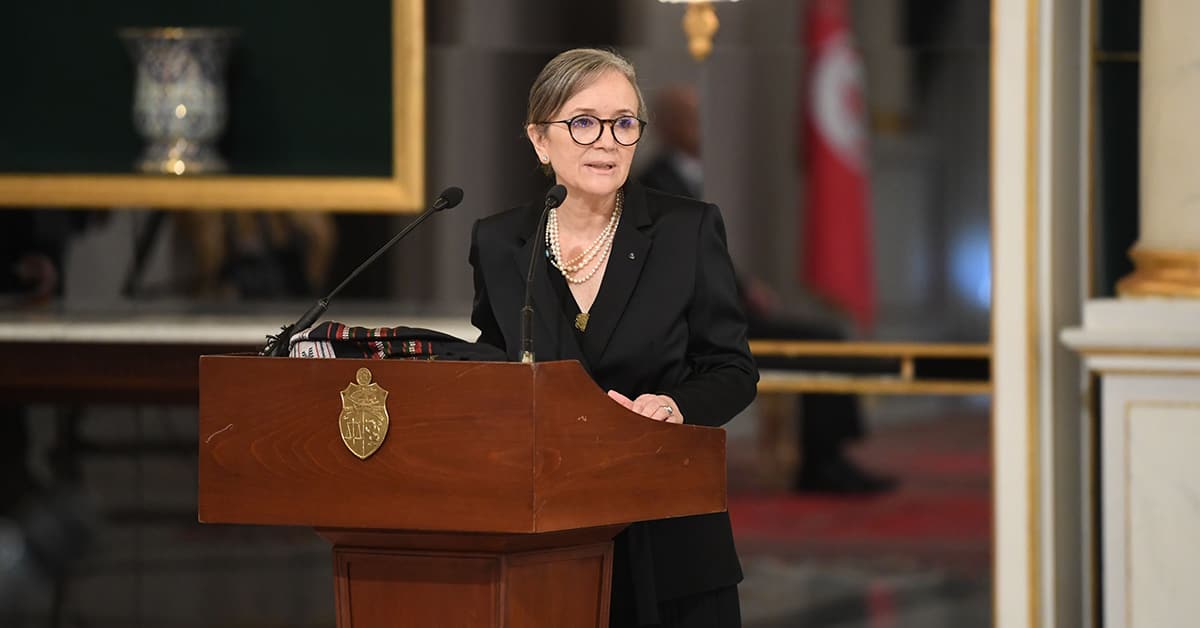Questions aboundabout Najla Bouden’s ability to manage Tunisia's ongoing political crisis or the risk of bankruptcy raised by the country's central bank.

Najla Bouden’s appointment as Tunisia’s first female prime minister reflects a significant shift in the public role for women in the Arab world. A geophysics professor at the National Engineering School of Tunis, Bouden has held senior positions at Tunisia’s Ministry of Higher Education, where she was responsible for implementing World Bank policies and programs. Yet, with very little experience in government, many fear that she will be little more than a pawn in President Kais Saied’s hands.
They might be right. Saied seized governing powers in September, two months after firing Prime Minister Hichem Mechichi and suspending the parliament, a move that led to street protests in many cities. Although the appointment of a woman as head of government is undoubtedly a positive development, Larbi Sadiki, a professor of Arab democratization at Qatar University, says that Bouden might have been given a poisoned chalice. “Accepting the task requires a loyalist posture vis-à-vis the presidency, and Saied wouldn’t have it any other way,” he says. “The problem is that Bouden is more or less ‘decreed’ into the post, rather than vetted and endorsed by parliament, nor does she enjoy support among the country’s civil society and the strong labor syndicate.”
The odds are heavily stacked against her, Sadiki argues. “Not only is she inexperienced as a cadre, she is a Francophone with a weak grasp of Arabic; and she was once a supporter of the ousted dictator Ben Ali. But there is no way that a PM without the backing of fully functioning democratic institutions and agreeable international donors would run the business of government smoothly.”
The problems she faces are indeed daunting. Fitch and Moody’s downgraded the country’s bond rating earlier this year, unemployment hovers around 18% and Tunisia’s estimated trade deficit is a little more than $3 billion—$500 million more than it was in 2020.
It is doubtful that Bouden has what it takes to manage this crisis or deal with risks ahead, including the risk of bankruptcy raised by Tunisia’s central bank.



